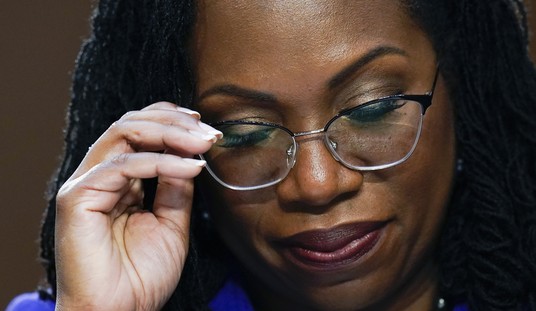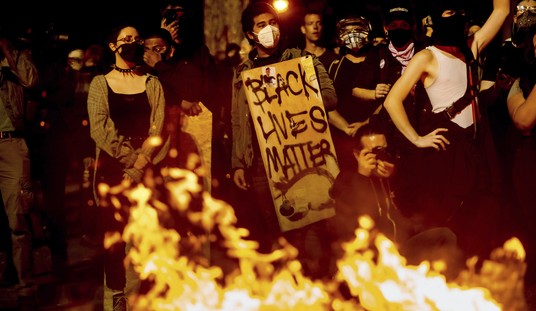The moral dilemma accompanying Gilad Shalit’s potential release from Hamas captivity has no easy solution. The cruel reality boils down to this: what is the price of a single human life? Is it worth the return of one thousand captives who may go on to destroy more lives?
For some pious Jews, the answer can be found in the mitzvah of pidyon shvuyim, the mandated good deed of redeeming captives. I think one can begin to find the answer in a broader edict. The Mishna teaches, “Whoever destroys one life is considered by the Torah as if he destroyed an entire world, and whoever saves one life is considered by the Torah as if he saved an entire world.” This is a principle taken up by Christianity as well, embodied in some pious Christians’ opposition to abortion and the death penalty. But the concept of the infinite value of human life goes beyond the ethics of when it is appropriate to take a life. It also touches the ethics of the costs of saving a life.
The lives that might be taken by the terrorists who will be freed are also of infinite value. But their lives might still be protected; and in the meantime, there is another life that can be saved. The moral dilemma of Gilad’s release is still difficult, but a second dilemma has also been raised: the moral dilemma of how we react to it.
There were two waves of reaction on Twitter when the news broke about Gilad’s potential release. The first wave was bittersweet relief. The second wave, a few hours later, was simply bitter.
The current furor on Twitter over the potential guilt Gilad would feel, and the outrage about the deeds of the terrorists being released, saddens me, because it adds an unnecessary layer of shame onto a man who has already suffered more than enough. In some of the anguish people are expressing about the release of Hamas terrorists, it might be easy to forget that it is those terrorists who committed the wrongs that we mourn: not Gilad, not the Israelis who negotiated his return. You cannot commute their guilt onto the innocent parties involved. That also violates the principle that Judaism founded, and Christianity adopted, and that both contributed to modern law: that justice does not permit communal guilt.
The terms of Gilad’s release, though painful to many Israelis, are not totally unwarranted; nor do I think he ought to feel externally-imposed moral guilt about them. The people the Palestinian terrorists have killed are dead; Gilad is (supposedly) alive. I don’t think it’s justifiable to begrudge an attempt to save a living person because it involves a perceived insult to the dead; but I could be wrong.
This is sadly, as Alan Dershowitz has written, “why terrorism works” — because we (the supporters of Western, Judeo-Christian ethics) value life, and terrorists don’t. But that is also what sets us apart from the terrorists. It puts a hobble on efforts to deter and disincentivize terror; but to take the hobble off would be no freedom.
Gilad has a long struggle ahead of him. There is no normal after what he experienced. He will certainly deal with feelings of guilt, fear, shame and grief. But tragically, that would be the case, no matter what the terms of his release were: whether Israel gave up one thousand prisoners for him, or none. And it’s laughable to think that somehow Hamas would have given him up with a “whoops, we’re sorry” and no morally ambiguous demands. But unless those demands included killing, incarcerating, torturing or otherwise harming innocents in exchange for Shalit’s freedom, I think the moral reasoning that guides most Judeo-Christian ethics and the modern legal structures that grew out of them comes down on the side of Shalit’s freedom.
Grief is not logical. The grief that Gilad and his family, and the families of victims of terror, must bear is mighty. In today’s Israel, no one is untouched by terrorism. But those with the emotional and mental fortitude to support Gilad and his family owe them this act of kindness, as their neighbors: to leave bitterness out of Gilad’s homecoming, or the homecoming of any other soldier whose freedom is the subject of a harsh moral test. Don’t pry into his psyche and surmise on his potential remorse. Welcome him with open arms and be grateful he is home.
It is impossible not to think of these moral dilemmas. Even if one is solidly in favor of Gilad’s release, it is impossible not to fear for his mental health under the burden of the price of his freedom. But if one is concerned, the best way to work off worry is to think of ways to help the person one is concerned for.
If Gilad were my brother and I wanted to comfort him, I would start by discouraging people from associating him with the crimes of terrorists who will be released in connection with Gilad’s release. No one has forgotten those victims, and no one will forget simply because Gilad has been released and so have the terrorists. But connecting their memory explicitly with Gilad’s release, whether it’s to shame him or more innocuously, because of a misled feeling of sympathy, accomplishes absolutely nothing.
If Gilad were my brother, or if one of the victims of a terror attack by a released Hamas member were my brother, I would urge the people who were concerned for our family to focus on the future: how to convince the world to stand on Israel’s side; how to perfect anti-terror devices, physical and diplomatic, to prevent another situation like this from arising; how to combat the ideology of death that is embodied by radical Islam; and how to perform acts of kindness and generosity to honor the victims of terrorism, dead and alive.
Grief is not logical. That is why it is the duty of those with some distance, however slight, from the tremendous event that Gilad’s release would be, to provide public support to him and his family and the families of terror victims. Sometimes that means it’s better to keep a few of our thoughts and speculations about his mental state to ourselves.










Join the conversation as a VIP Member